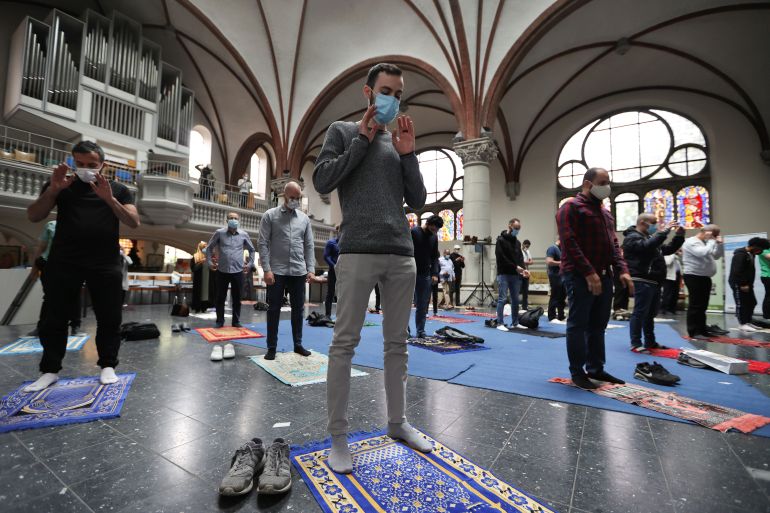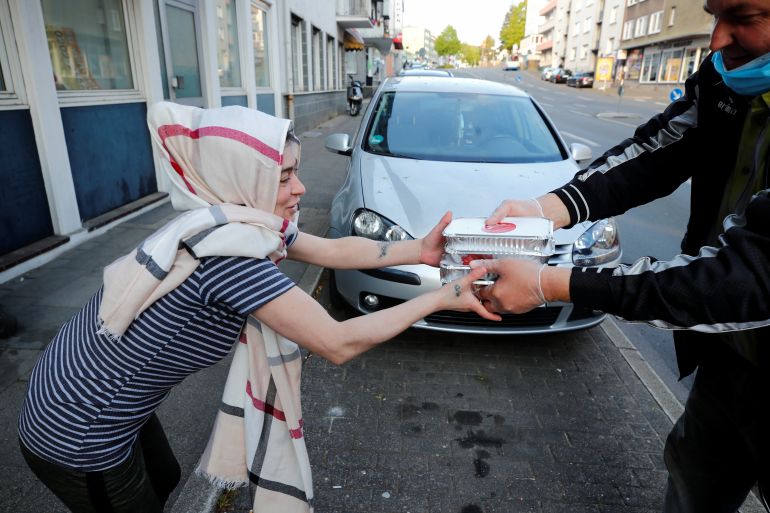German Muslims face racism, discrimination every day: Report
The 400-page report commissioned by the interior ministry concludes at least one-third of Muslims in Germany have experienced hostility because of their religion.

Muslims in Germany often face rampant discrimination, hatred and sometimes violence in their daily lives, according to a new report commissioned by the interior ministry in Berlin.
The Independent Group of Experts on Muslim Hostility (UEM) analysed scientific studies, police crime statistics and documentation of anti-Muslim incidents by anti-discrimination agencies, counselling centres and nongovernmental organisations.
Recommended Stories
list of 4 items- list 1 of 4Q&A: Canada’s anti-Islamophobia representative vows to fight hate
- list 2 of 4History Illustrated: The Rise and Rise of Islamophobia in India
- list 3 of 4A small dip in Islamophobia in the US gives us hope
- list 4 of 4UN’s anti-Islamophobia day ‘to stamp out anti-Muslim hatred’
The comprehensive 400-page report published by the 12-member independent panel took three years to complete. The findings were presented at the interior ministry on Thursday.
At least one-third of Muslims in Germany have experienced hostility because of their religion, the UEM said. The experts, however, asserted the real numbers are likely higher since only 10 percent of Muslims appear to report hostility and hate crimes against them.
“Muslim life belongs to Germany as a matter of course,” Interior Minister Nancy Faeser said in a statement.
“Many of the 5.5 million Muslims in Germany experience exclusion and discrimination in everyday life – up to and including hatred and violence,” she said upon receiving the report. “It is very important to make this visible and to raise awareness of resentment that is still widespread,” she added.
German Muslims are not only exposed to blunt racism but also to daily stereotyping from kindergarten to old age, the experts said.
Even German-born Muslims were widely seen as “foreign” and Islam was perceived as a “backward religion”; women wearing traditional headscarves faced “particularly dramatic forms of hostility”, the report said.

In an analysis of popular culture, the report found nearly 90 percent of films the panel watched presented a negative view of Muslims, often associating them with “terror attacks, wars and oppression of women”.
Former Interior Minister Horst Seehofer launched the commission in 2020 after a far-right German killed 10 people and wounded five others in an anti-Muslim shooting spree in the central city of Hanau.
The attack shocked the country and prompted rights groups to sound the alarm about Islamophobic sentiment in Germany.
‘Structural discrimination’
Saba-Nur Cheema, one of the 12 experts on the panel said the report also revealed details about prejudice towards Muslims that she called “anonymous and subtle”.
“[According to the report] almost half of the population in Germany believes Islam does not belong to Germany … or one-third of the population felt alien [in Germany] …. because of the Muslims living here,” she told Al Jazeera.
Moreover, Cheema said the report found some 40 percent of people in the country would not accept a Muslim mayor. The expert said such attitudes affect the everyday lives of Muslims in the country. “It’s something which we call structural discrimination – where Muslims are excluded from employment and or when they look for housing.”
The commission recommended the government create a task force to address bias against Muslims and a central clearinghouse to collect complaints.
Furthermore, training was needed at daycare centres and schools, police stations, government offices, media outlets and entertainment companies to combat the negative image of Muslims while textbooks and lesson plans should be overhauled.
Germany’s Muslim community is diverse with the majority claiming Turkish roots. Others originally emigrated from Arabic countries such as Morocco or Lebanon. Many first came to West Germany more than 60 years ago, when they were recruited as “guest workers” to help the country advance economically.